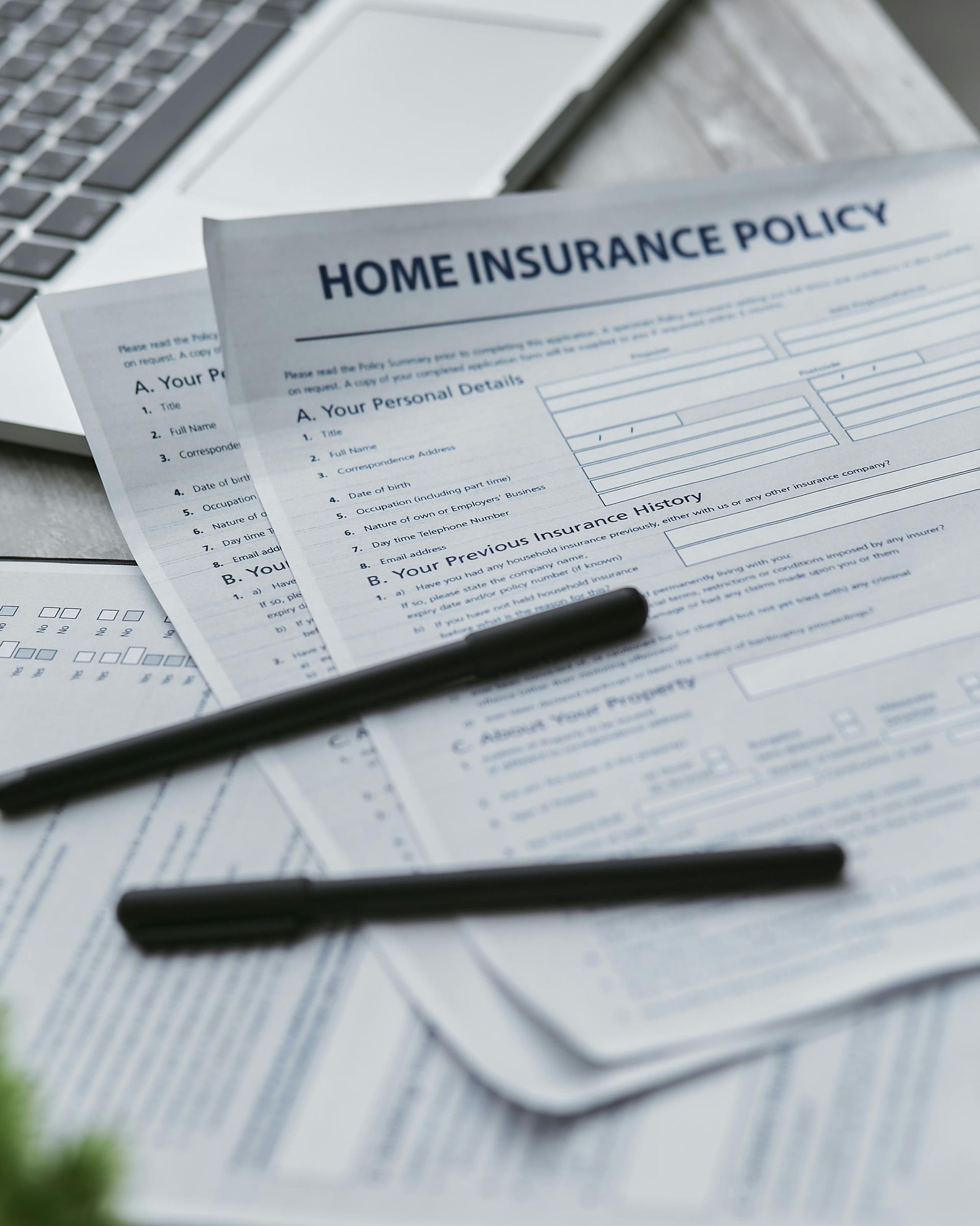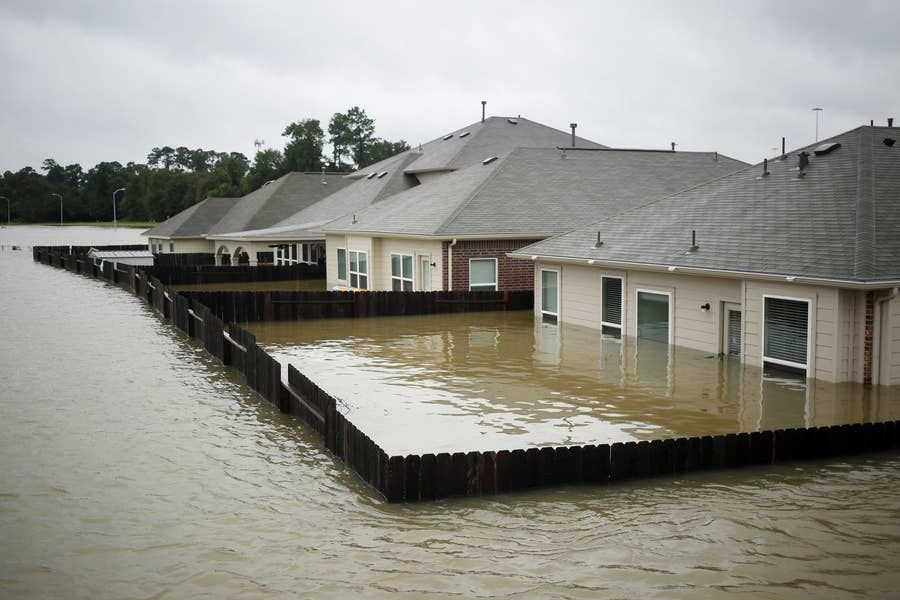Save Big: HOME OWNERS INSURANCE Tips and Tricks
Discover effective tips and tricks to save money on HOME OWNERS INSURANCE. Our guide helps you maximize savings while ensuring proper coverage.

Key Highlights
- Homeowners insurance savings can be achieved by regularly comparing quotes and finding the best coverage options.
- Bundling home and auto insurance typically unlocks extra discounts and savings.
- Increasing your deductible could lead to lower premiums, making insurance more affordable.
- Enhancing home security and maintenance can qualify you for discounts on your insurance policy.
- Maintaining a good credit score is crucial, as it influences your insurance premium rates.
- Understanding your policy coverage and exclusions helps you make informed decisions about your homeowners insurance.
Introduction
Owning a home comes with its fair share of responsibilities, including the essential task of securing homeowners insurance. This coverage provides not just financial protection for your property but also peace of mind for you and your family. As various risks like fire, theft, and water damage can pose threats to your personal belongings, understanding how to save on homeowners insurance while maintaining adequate coverage is vital. Let’s explore some smart strategies that can help you reduce your costs without compromising on your insurance needs.
Smart Ways to Save Money on Homeowners Insurance: Tips and Tricks
Finding ways to reduce your homeowners insurance costs can offer substantial savings. One effective strategy is to bundle your home and auto insurance; many insurance companies reward this with discounts. Engaging in regular insurance policy reviews can help ensure you are not overpaying or lacking critical coverage options. Additionally, increasing your deductible might lower your premium, but be sure to balance this with the amount of insurance coverage you need. Taking these proactive measures will enhance your financial protection while keeping costs manageable.
1. Shop Around and Compare Multiple Insurance Quotes
Exploring various insurance quotes is a smart way to ensure you get the best value for your homeowners insurance policy. Different insurance companies offer unique rates and coverage options, which makes it essential to compare multiple quotes before making a decision. Look for discrepancies in coverage limits, premiums, and available discounts. By doing so, you can find a policy that perfectly aligns with your needs while saving money. A little time spent researching today can lead to significant savings tomorrow!
2. Bundle Homeowners and Auto Insurance for Discounts

Bundling homeowners and auto insurance can be a smart financial move, providing significant discounts that can save you money. Many insurance companies offer a reduced rate when multiple policies are held with them. This strategy not only simplifies your monthly payments but also enhances your relationship with the insurance provider. Plus, having all your coverage needs in one place often leads to more tailored services and personalized support. It’s an efficient way to ensure that both your home and your vehicle have the protection they deserve.
3. Increase Your Deductible to Lower Premiums
Increasing your deductible can be a smart move for saving on homeowners insurance premiums. A higher deductible means you’ll pay more out-of-pocket in the event of a claim, but this trade-off can significantly lower your monthly costs. By opting for a higher deductible, you’ll likely be more selective about filing small claims, allowing you to keep your insurance premium costs down. Just ensure that the deductible amount fits comfortably within your budget to avoid financial strain during unexpected events.
4. Improve Home Security and Safety Features
Enhancing the security and safety features of your home can significantly lower your homeowners insurance premiums. Installing security systems, smoke detectors, and deadbolt locks helps reduce the risk of theft and fire, leading to potential discounts on your insurance policy. Additionally, consider reinforcing entry points and ensuring proper lighting around your property. Not only do these improvements safeguard your personal belongings, but they also contribute to peace of mind. A home that prioritizes safety is often more appealing to insurance companies, resulting in reduced coverage costs.
5. Maintain a Good Credit Score
Maintaining a good credit score can significantly impact your homeowners insurance rates. Insurance companies often view higher credit scores as indicative of lower risk, allowing you to secure better premium rates. Regularly checking your credit report for inaccuracies and making timely payments on debts can enhance your score. This practice not only boosts your financial health but also leads to potential discounts on your policy, ensuring you have sufficient coverage for personal property and liability without breaking the bank.

6. Ask About Available Discounts
Many insurance companies offer various discounts that can significantly reduce your homeowners insurance premiums. It's essential to inquire about these opportunities, as not all discounts are automatically applied. Some common options include bundling your home insurance with auto insurance or discounts for home security systems. Taking the time to understand the available discounts can result in substantial savings while ensuring adequate coverage for your personal property. Don’t hesitate to ask your insurance agent about all possible discounts that may apply to your specific situation.
7. Avoid Filing Small Claims
Filing small claims can often lead to increased premiums and may even impact your homeowners insurance coverage in the long run. Each claim filed creates a record that insurance companies review, which could brand you as a high-risk policyholder, potentially costing you more down the line. Instead, consider covering minor repairs out of pocket to maintain your claim-free status. This strategy not only helps keep your insurance premiums in check but also offers peace of mind as you retain your financial stability.
8. Review and Update Your Coverage Regularly
Regularly reviewing and updating homeowners insurance coverage can lead to significant savings and peace of mind. Life changes, such as renovations, new purchases, or changes in family dynamics, may require adjustments to your policy. Keeping an updated inventory of personal belongings helps ensure you have adequate personal property coverage and could prevent underinsurance. Additionally, staying informed about the latest coverage options can help you explore ways to enhance your protection against potential risks, such as natural disasters or liability issues. Stay proactive to safeguard your home investment.
9. Choose the Right Coverage Limits for Your Needs
Finding the optimal coverage limits for a homeowners insurance policy can significantly enhance your financial protection. Assessing the value of your personal property, including essential personal belongings and the structure of your home, plays a crucial role in determining adequate limits. Remember to consider varying levels of coverage such as dwelling coverage, personal liability, and additional living expenses. Tailoring these amounts to mirror your lifestyle and personal risk factors ensures you’re covered in the event of a covered loss while avoiding overpaying for unnecessary coverage.
10. Consider the Difference Between Actual Cash Value vs Replacement Cost
Evaluating the nuances between actual cash value (ACV) and replacement cost can significantly affect your homeowners insurance policy. ACV takes depreciation into account, meaning you receive a payout based on the current market value of your belongings after a covered loss. In contrast, replacement cost provides enough coverage to replace those items at current prices, giving you greater financial protection. Understanding these definitions helps ensure that your insurance policy meets your needs and offers the peace of mind necessary for safeguarding your personal property.
11. Understand What Is and Isn’t Covered
A thorough understanding of your homeowners insurance policy is essential for tailored protection. Familiarize yourself with both covered perils—like fire, theft, and certain types of water damage—and exclusions, such as flood damage or general wear and tear. Review your policy documents to identify personal property coverage limits, liability coverage, and additional living expenses for temporary relocation. Knowing these ins and outs empowers you to navigate potential claims and ensures that your home and personal belongings are adequately protected.

12. Make Your Home Disaster-Resistant
Enhancing your home’s resilience against disasters can significantly impact your homeowners insurance coverage. Implementing features like storm-resistant windows, reinforced roofing, and flood barriers effectively protects your property from potential covered perils. Not only do these upgrades safeguard personal belongings, but they also signal to insurance companies that you prioritize risk management. This might lead to lower premiums or additional discounts, providing peace of mind knowing your home is well-prepared for unexpected events while maximizing your property coverage.
13. Pay Your Premiums Annually Instead of Monthly
Paying your homeowners insurance premiums annually can be a savvy move for your wallet. Many insurance companies offer discounts for this payment method. By opting for a single yearly payment, you can avoid extra fees associated with monthly installments. This approach not only simplifies your budgeting but also reduces the risk of lapses in coverage. You’ll gain greater peace of mind knowing your policy is fully paid, ensuring uninterrupted protection for your personal property and dwelling against potential perils.
14. Work with an Independent Insurance Agent
Finding the right coverage can be overwhelming, but partnering with an independent insurance agent simplifies the process. These professionals work with multiple insurance companies, giving you access to a variety of homeowners insurance policies tailored to your specific needs. They can help you navigate coverage options, ensuring you have adequate personal property protection and the right policy limits without breaking the bank. With their expertise, you’ll gain peace of mind knowing you’re making informed decisions about your home insurance coverage.
Factors That Influence the Cost of Homeowners Insurance

Several key factors can impact the cost of homeowners insurance. Location plays a crucial role; areas prone to natural disasters, crime, or high rates of property damage can lead to higher premiums. The age, size, and construction materials of your home also significantly affect your insurance policy. An insurance company will assess your personal claim history and credit score, as these elements may influence your risk profile. Understanding these factors can help in selecting the right coverage options and ensuring you have adequate financial protection.
Location and Local Risks
The safety of your home is closely tied to its location, which significantly influences homeowners insurance premiums. Areas prone to natural disasters like floods or earthquakes will typically have higher rates due to increased risk. Local crime rates also play a role; higher crime can mean increased liability coverage needs. Understanding these local variables helps you choose the right policy and coverage limits for your situation. Always consider how geographic factors affect not just insurance costs, but also your home’s overall safety.
Age, Size, and Construction Materials of the Home
The age, size, and construction materials of a home significantly impact homeowners insurance premiums. Older houses may require more frequent upkeep and could potentially face higher risks, affecting the insurance coverage needed. Size matters too; larger homes often mean higher replacement costs and, consequently, higher premiums. Additionally, materials like wood or brick influence resilience against natural disasters, which can alter your coverage options. A well-built, modern home typically incurs lower rates compared to older structures that may have outdated features, providing peace of mind.
Your Personal Claim History and Credit Score
A solid personal claim history can significantly affect your homeowners insurance premiums. Insurance companies often assess past claims to gauge risk, as a history of multiple claims may lead to higher rates. Additionally, maintaining a good credit score is crucial; insurers view it as an indicator of reliability and financial responsibility. By ensuring your credit score remains robust, you might unlock better coverage options and lower premiums. Emphasizing these aspects can provide peace of mind while safeguarding your personal belongings and property.
Getting the Best Deal on Homeowners Insurance
Finding the best deal on home insurance requires a bit of homework but can yield significant savings. Gathering the necessary insurance information will help you obtain accurate quotes—think about your home’s market value and any specific coverage options you want. Research reputable insurance companies by reviewing customer feedback and their claim handling reputation. By comparing multiple homeowners insurance policies, you can ensure that you're getting the most coverage for your money, leading to financial protection tailored for your unique needs.
What Information You Need for an Accurate Quote
Gathering the right information ensures you receive an accurate homeowners insurance quote. Start with details about your home, including its age, size, and construction materials. Document any personal property, such as valuable belongings or upgrades like security features, which can influence coverage options. It's also helpful to provide information on your personal claim history and credit score, as these factors affect your premiums. Finally, consider sharing any specific needs for liability coverage or additional living expenses to tailor your policy effectively.
Conclusion
Securing an affordable and effective homeowners insurance policy is crucial for protecting your property and personal belongings. By implementing savvy strategies like comparing quotes, bundling policies, and improving your home’s safety features, you can save money without compromising coverage.
Remember to regularly assess your insurance needs and stay informed about available discounts. Ultimately, a proactive approach ensures that you have the right amount of coverage for peace of mind, allowing you to enjoy your home while safeguarding your financial future.
Frequently Asked Questions
Is homeowners insurance required by law or by mortgage lenders?
Homeowners insurance is not legally required, but mortgage lenders often mandate it to protect their investment. If you have a mortgage, check with your lender for specific requirements. Even without a mortgage, it's wise to have coverage to safeguard your property against potential risks.
What is the difference between homeowners and flood insurance?
Homeowners insurance protects against various risks to your home and belongings, while flood insurance specifically covers damage from flooding. Most standard homeowners policies exclude flood coverage, so it's crucial to assess your area's risk and consider additional flood insurance if necessary.
How can I find cheap homeowners insurance in the United States?
To find cheap homeowners insurance in the United States, start by comparing quotes from multiple providers. Consider bundling policies, increasing deductibles, and exploring discounts. Additionally, improving home security and maintaining a good credit score can help lower your premiums significantly.






